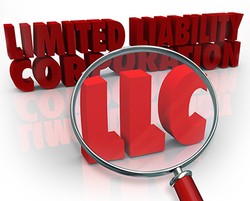If you're ready to make this dream come true, you'll need to put in the hard work yourself. That means a lot of planning, making a few big decisions and getting through the legal aspects which takes some time with research. While it may seem daunting, it's easier to free yourself from the 9-5 grind than you think.

5 Steps to Starting Your Own Business
Millions of people dream of the day when they will become their own boss. Many of us put off this dream and let it fade, while others make it a reality.
Step #1: Write Your Business Plan
Don't convince yourself that a business plan is unnecessary; it is, regardless of the type of business you want to start. A business plan does not need to be complex, but it should lay out your objectives in a way that will make you think out all the details.
Step #2: Choose a Business Name
Your name should be something that makes it obvious what you do and what you offer, and sticks in people's heads. Of course, it should also be available. You can run a corporate name search and check at the state and federal level to make sure you business name is available - An example would be the Search By Entity Name page for Florida. Once you have your name set, make sure you get a matching domain and register your name with the state.
Step #3: Determine Your Legal Structure
The type of business structure you choose will depend on your business. You may want to form an LLC or incorporate, depending on your risk. Many business owners begin as a sole proprietorship, which is the most straightforward. Unless you will be giving advice or performing a service that opens you to risk of lawsuit, you probably do not need to worry about the structure right away. Just to be safe, talk it over with an attorney or a business services company that specializes with incorporating businesses.
Step #4: Get Business Licenses
You may need a few business licenses in your state, depending on your industry and where you are located. At this point, you should also register with your state for a tax identification number and anything else you need for state and local taxes.
Step #5: Open a Business Bank Account
With everything ready to go, make sure you open a business bank account to keep you business expenses and income separate from personal finances. This will save you a lot of trouble come tax time, and avoid potential legal issues. You should also choose an accounting program to get started.
Funding Possibilities
 One of the greatest challenges you will face to starting your own business is coming up with capital, unless you have a significant amount in savings that you will put into your newfound business. Most startups begin by tapping retirement funds, insurance policies, family loans, credit cards and an employee severance package. Once you've found all of the money you can on your own, you can look into other options. Here are a few ideas you can consider:
One of the greatest challenges you will face to starting your own business is coming up with capital, unless you have a significant amount in savings that you will put into your newfound business. Most startups begin by tapping retirement funds, insurance policies, family loans, credit cards and an employee severance package. Once you've found all of the money you can on your own, you can look into other options. Here are a few ideas you can consider:
- SBA loans. If you have a home-based business, the Small Business Administration's Microloan program may be a good choice. This program is offered through local non-profit lenders with an average loan of around $10,500. In most cases, you will need to provide collateral and a personal guarantee.
- Crowdfunding. This is a popular way to raise initial capital, but you will need to have a really good idea to get people behind you. You can fund your business with pre-orders or offer other types of rewards in exchange for donations.
- Merchant cash advances. If you can't get bank financing, merchant cash advances can be a good way to go. The trick is you need to have at least a full year of history with a credit card processor to apply, so this option will help once your business is established.
- Get deposits on contracts. This is a good way to get clients you line up to help fund your business.
- Barter for services and products. Finally, consider bartering to help you get ahead. If you are starting a lawn care business, you may be able to get web design or equipment you need by trading your services.
You might also like
What is Limited Liability and Why Do I Need it?When you incorporate or form an LLC, you gain a huge benefit called "limited ...



 Tips for Getting Certified as a Women Owned Businesson 05/06/2016
Tips for Getting Certified as a Women Owned Businesson 05/06/2016
 Tips for Writing Your LLC Articles of Organizationon 01/19/2016
Tips for Writing Your LLC Articles of Organizationon 01/19/2016
 Important Reasons to Incorporate Your Nonprofiton 09/14/2015
Important Reasons to Incorporate Your Nonprofiton 09/14/2015
 How to Choose a State to Form an LLCon 07/15/2015
How to Choose a State to Form an LLCon 07/15/2015

Comments